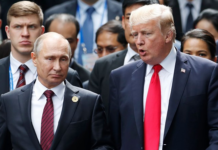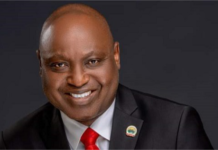Local telcos struggle to survive dominance and unfair treatment by big players
By Jeph Ajobaju, Chief Copy Editor
Bigger telecom operators are choking the majority smaller ones and 90 per cent of them could become extinct in the next five years unless the government acts immediately to support them to remain afloat, an industry expert has warned.
Ayoola Oke, ICT and regulatory expert, classified the operators into three tiers:
- Tier 1 – Big Mobile Network Operators
- Tier 2 – Moribund operators
- Tier 3 – Struggling smaller operators
Oke was once a Special Assistant to former Communications and Technology Minister Mobolaji Johnson and was also Special Assistant to former Nigerian Communications Commission (NCC) Executive Vice Chairman Ernest Ndukwe.
He said in Lagos that almost all the operators that were active and vibrant 14 years ago are now dead, or struggling, leaving the Tier 2 space almost empty, while Tier 1 operators face no competition and lack incentive to improve.
None of the local operators in Tier 3 has been able move to Tier 2 because they are dying, he added, warning that Nigeria would be left with Tier 1 oligopoly if indigenous operators die out.
Oke cited Tier 1 operators asking smaller ones to pay for termination rate in dollars rather than naira, Nigeria’s legal tender, leading to their disconnection.
“It is not a prophecy; if certain regulatory steps are not taken and things not done the way they should, more than 90 per cent of local telecoms operators will probably all die out in the next five years like what happened to Tier 3 operators in the past 14 years, and that will be terrible for the country and consumers.
“From the way the industry is structured now, the bigger operators are suffocating the industry,” he said.
“The industry is divided into three – Big Network operators (Tier 1), Tier 2 (Operators like Starcomms, Multilinks and the likes) and Tier 3 (small operators such as Internet service providers, Data access service providers, Swift telephone networks, rainbow net.”
__________________________________________________________________
Related articles:
ISPs seek NCC intervention to prevent subsector collapse
Telcos cut profit to attract subscribers with lower tariffs
Telcos groan under 40 different taxes causing poor service
__________________________________________________________________
Impact of death of indigenous telecom operators
“None of the ones in Tier 3 have been able to grow to become Tier 2 because they are dying,” Ayoola said, per The Nation.
“Once they all die out, we will be left with oligopoly, where the few big operators, mostly originally foreign owned and controlled companies, will dominate the market to the detriment of the country.
“For instance, there was a determination of the International Termination Rate made by NCC last December. All of a sudden, the bigger operators are interpreting the Determination to mean that the smaller operators must pay them in dollars for even the downstream portion of the international traffic.
“Meanwhile, such is an illegality and a contravention of the provisions Section 15 and 20 of the Central Bank of Nigeria Act. Section 20 of the CBN Act expressly criminalising demand.
“Due to this, small operators are being disconnected by big operators for flimsy reasons without the notice of the NCC.”
Need for restriction and regulation
Ayoola urged the Ministry of Communications policy restrictions and the NCC with regulations that control big operators so their weight will not crush smaller ones
“Federal Government should come up with policy restrictions and regulatory steps. NCC did well when it had dominance and significant market power whose purpose was to subject those companies to asymmetric regulations.
“NCC has to be proactive, by encouraging smaller operators by conducting timely investigations on big operators for disconnecting smaller operators.
“NCC must monitor more and in fact should have automatic technical monitoring because it is the consumers that would suffer. They should penalise bigger operators if found wanting.
“NCC should do more asymmetric regulations whereby they would impose more regulatory controls and obligations on the big operators so that their weights won’t crush small operators.”














